Volantis: the most sustainable architect for environmentally friendly construction and renovation projects
Volantis designs buildings in several market segments, including the manufacturing industry, healthcare, business service providers, the logistics industry, non-residential buildings and the education sector, in accordance with an integral approach. Buildings are not designed exclusively by our sustainable architecture specialists. Our designs are the result of the joint effort of all the various disciplines represented by Volantis’ small team of professionals, who are wonderfully attuned to each other. Every newly-to-be-erected or newly-to-be-expanded building is expected to meet today’s sustainability standards. Volantis will ensure that the relevant sustainability-related objectives are recorded and embedded in the design.
Healthcare
As specialists in healthcare housing, our healthcare architects create the ultimate experience for your residents and staff.
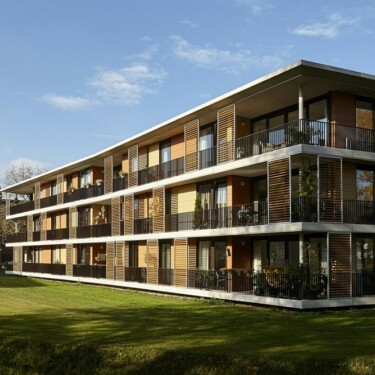
Manufacturing industry
In the industry, the process is central, and no concessions are made on that. Gradually, these sectors are becoming increasingly aware of the need for sustainable and circular construction.
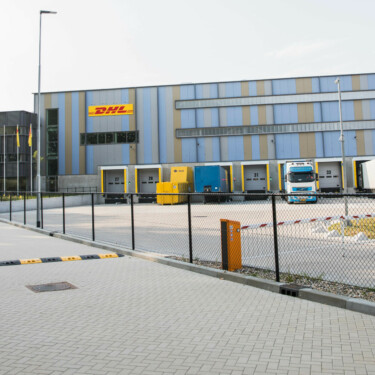
Cradle to Cradle Egerbos sports facility
Ecological building and renovation is the new normal to us
When it comes to sustainable construction and circularity, Volantis’ sustainable architecture specialists are ahead of their time. In addition, our consultants and architects issue recommendations on environmentally friendly construction and renovation methods.
Like all our architects and other specialists, Bas van de Westerlo, our Circularity business unit manager, believes there is an obvious need for environmentally friendly construction and renovation methods. ‘We want to do the right things, and we want to do them well. In association with our consultants and architects, we give buildings a new lease of life.’ Adaptive reuse of a building is a principle of sustainability, with the reuse idea presented to us by the client. Volantis then further ‘greens’ the building – for instance, by rendering it more energy-efficient, healthier or greener, or by ensuring that more recyclable materials are used. We do so by applying smart solutions, and this is how we apply the principles of circularity in an organic manner. We always do so in order to reduce the amount of construction waste and to increase the percentage of non-primary resources used in our buildings.
It is a good idea to formalise sustainability projects and quantify the building’s energy performance by means of certification (LEED or BREEAM). This is how we create added value for the building.
We believe the world can be a better place than it is now. We seek to contribute to a better world by building sustainable buildings and renovating existing buildings in a sustainable manner.
Sustainability: a combination of innovation, smart technology and common sense
Sustainable construction is no longer some sci-fi concept we will implement at some point in the future. Our architects spend their days erecting environmentally friendly buildings and renovating existing buildings in an environmentally friendly way. The challenge they seek to tackle is to stay innovative and render buildings more and more sustainable, using natural materials where possible.
In addition, there is a growing focus on circular construction methods. It means that materials can be reused in a future project. We erected a building made out of recyclable materials at the Floriade showgrounds in 2012. This building was later dismantled and re-erected at a completely new location. In this way, materials retain their value. Villa Flora at the Floriade showgrounds is a good example of a building erected using circular construction methods.
Sustainable repurposing of a former factory building into office space
Sustainable construction specialists for healthcare
Volantis’ sustainable architecture specialists are active in all market segments, although we specialise in healthcare facilities and non-residential buildings. Thanks to our extensive experience, we know exactly what requirements buildings must meet and how best to utilise them in certain market segments.
For instance, let’s consider a healthcare facility. The focus here is on the good health of the residents and staff working in the building. When we design buildings, we take into account various types of impairment (e.g. physical and mental impairment), so as to be able to create buildings in which the residents feel good and are able to lead happy lives. Do the residents need more rest? Or do they actually need more stimuli? Does the building have efficient pathways for your employees? Is there enough room for an assistant on either side of a resident? Ergonomics are absolutely vital in the design of a building. We contribute ideas, based on the wishes and requirements expressed by the residents. In other words, Volantis serves as a professional conversation partner in matters relating to the provision of care services.
One great example of this is Domi Curae, an innovative concept partly developed by Volantis-affiliated architects, which allows healthcare facilities to be built in a sustainable and environmentally friendly manner in less time and at a lower price. Research has demonstrated that emotion-oriented, sustainable and environmentally friendly buildings and renovations tend to produce great results:
- Staff sickness absence rates were 2 to 3 per cent lower than the national average.
- Residents’ medicine use decreased by 30 per cent.
- A whopping 85 per cent fewer disputes were reported.
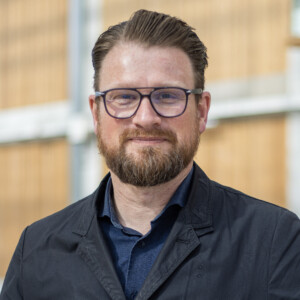
Eric Schellevis
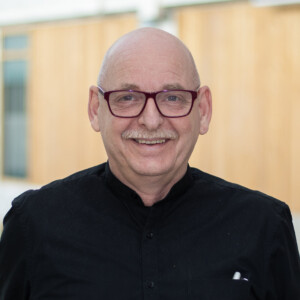
Joep Wielders
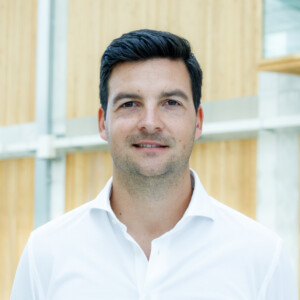
Funs Jacobs

Mitchell Walda
Sustainable construction specialist in the manufacturing industry
In industrial facilities, the process is always prioritised. We do not compromise on that. In other words, we must build around the process, quite literally. Here, too, our extensive experience in the field allows us to know exactly how to make the most of various types of facilities and how to make the best possible use of the available space. These market segments are gradually becoming more aware of the need for sustainable and circular construction methods. We will always promote those things. BREEAM certification makes sustainable construction attractive because it is a status symbol and makes companies more interesting to investors. Don’t hesitate to contact us if you’d like to hear more about this.

